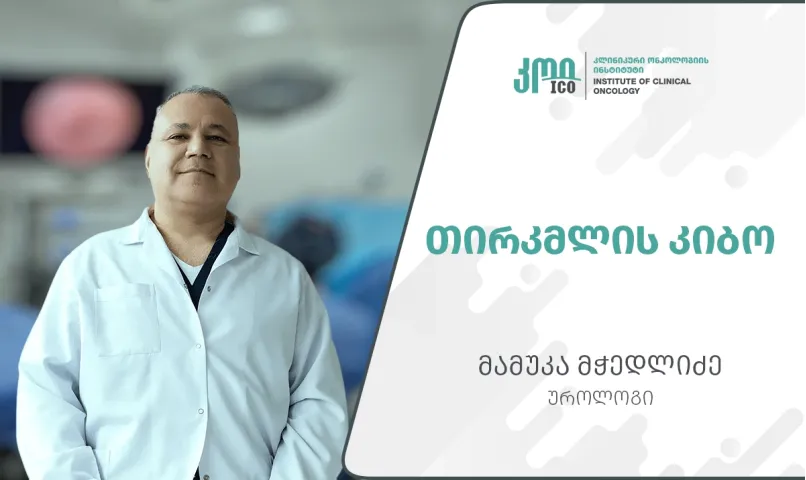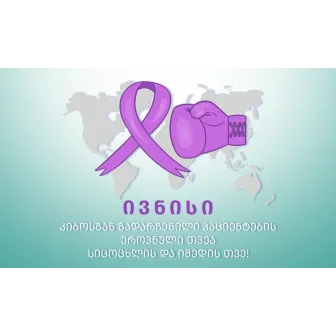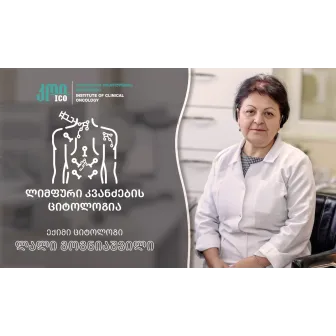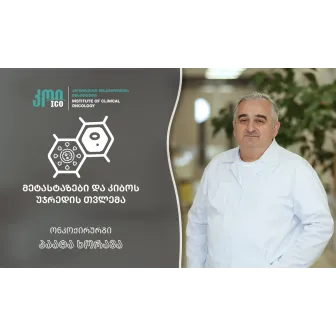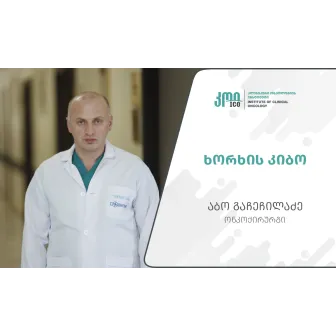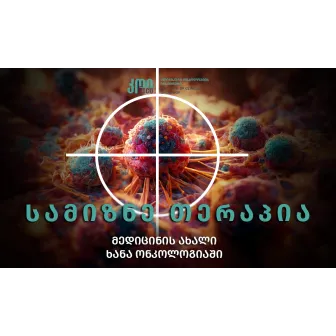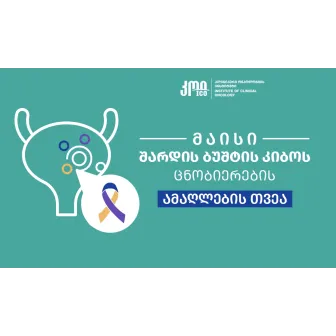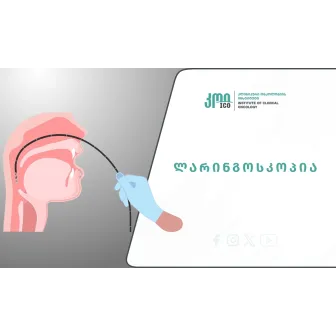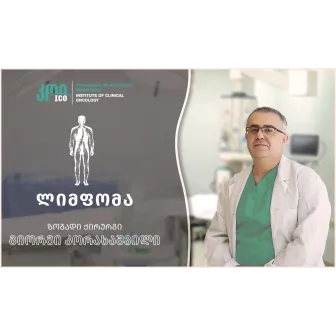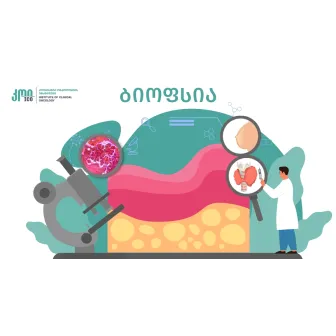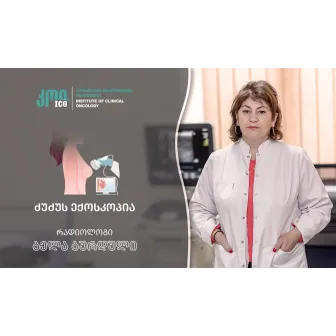What are the statistics of kidney cancer, what are the symptoms, and what should we know about this disease? Mamuka Mchedlidze, the urologist at the Institute of Clinical Oncology, talks to us about this topic.
- How common is kidney cancer?
Kidney cancer, i.e., renal cell carcinoma (RCC) is the 14th most common cancer and accounts for approximately 2% of all cancers. In 2022, an estimated 434,840 new cases were reported worldwide, and 155,953 people died from the disease.
According to the World Health Organization (WHO) data, approximately 300 new cases of kidney cancer were recorded annually in Georgia in 2020. Men are twice as likely to be affected as women, and the peak incidence of the disease occurs in the sixth or seventh decade.
- Which factors increase the risk of developing kidney cancer?
The studies witnessed that the factors increasing the risk of kidney cancer development are:
- Tobacco consumption;
- Obesity and metabolic syndrome;
- Hypertension (high blood pressure);
- Chronic kidney disease and dialysis.
- How is kidney cancer diagnosed?
Quite often, kidney cancer is diagnosed incidentally during a routine ultrasound.
- In which symptoms can the disease be manifested?
- 50% of patients have hematuria (blood in urine);
- 40% have pain in the small of the back
- 25 % have metastatic signs (night sweating, fever, fatigue, weight loss, hemoptiz)
- 25% have signs of metastatic disease (night sweats, fever, fatigue, weight loss, hemoptysis);
- Less than 10% demonstrate classical triad: hematuria, small back pain, and abdominal mass.
Less common symptoms include acute varicocele (venous obstruction of the left testicle), swelling of the lower limbs due to venous obstruction, and paraneoplastic syndromes that disrupt various body functions.
- What is paraneoplastic syndrome?
In general, syndrome (Greek σύνδρομον, σύνδρομο - Syndrome - gathering) in medicine refers to a combination of several signs or symptoms characteristic of a disease. In the case of kidney cancer, it can be reflected in symptoms characteristic of other diseases
- Anemia - caused by microhematuria Polycythemia - due to ectopic secretion of erythropoietin (erythropoietin is a glycoprotein hormone that causes an increase in the production of red blood cells (erythrocytes). In adults, about 90% of erythropoietin is formed in the kidneys, about 10% in the liver).
- Hypertension (25%) - Ectopic renin secretion, renal artery stenosis, or arteriovenous fistula
- Hypoglicemia - ectopic secretion of insulin. Insulin - a peptide hormone produced in the pancreas; It is considered to be the body's main anabolic hormone; It regulates the metabolism of carbohydrates, fats, and proteins that promote the absorption of glucose from the blood into the liver, fat, and skeletal muscle cells.
- Hypercalcemia (10-20%) - Ectopic secretion of a parathyroid hormone-like substance.
- Gynecomastia, decreased libido, amenorrhea, - ectopic secretion of gonadotropins. In the presence of these symptoms, it is important to consider that they may be caused by kidney cancer.
The least invasive and affordable diagnostic method is ultrasound examination. For additional precision, computed tomography or magnetic resonance imaging with intravenous contrast is used.
- What are the treatment methods?
The main treatment modality for kidney cancer is surgery. It can be:
- Radical or partial nephrectomy (if the size is less than 5 cm and its location allows the removal of the damaged part of the kidney along with the tumor, while preserving healthy tissue);
- Surgery can be performed by open or laparoscopic method;
- As an alternative, minimally invasive methods can be used, such as radiofrequency ablation, cryoablation, high-intensity focused ultrasound ablation, and microwave ablation;
In inoperable cases (especially when complicated by hematuria), embolization of the renal arteries is possible, which is highly effective.
Chemotherapy and radiotherapy are not applied in the treatment of kidney cancer. Only immunotherapy is possible.
- How can kidney cancer be prevented?
Primary prevention is one of the most important strategies for cancer control. By managing the main risk factors, it is possible to reduce cancer-related deaths by about 40%. Studies show that at least one-third of cancer cases can be prevented by changing harmful habits.
Changing a lifestyle depends on each person's will, and no complex or expensive interventions are required. Awareness raising and the adoption of a healthy lifestyle contribute to the reduced risk of developing cancer. For this, it is important to:
• Quit tobacco consumption,
• Limit excessive alcohol consumption,
• Eat a balanced and healthy diet,
• Increase physical activity,
• Control body weight.
In addition, having yearly preventive examinations enables the detection of diseases at an early stage of development, which makes treatment much more effective.
- Views:55232




